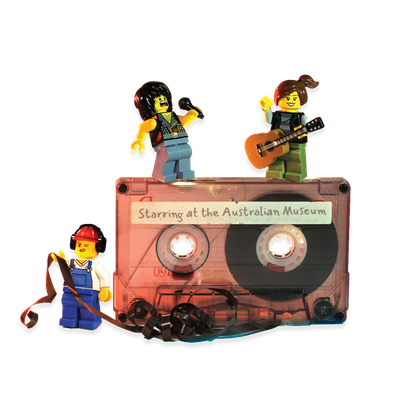Your search returned 28 results
By Page Type
By Tag
- All
- fish (966)
- blog (698)
- fishes of sydney harbour (400)
- First Nations (293)
- Blog (236)
- AMRI (169)
- archives (165)
- Aboriginal and Torres Strait Islander (135)
- Eureka Prizes (131)
- insect (126)
- Ichthyology (125)
- geoscience (109)
- minerals (102)
- climate change (98)
- podcast (94)
- Fish (91)
- Anthropology (89)
- International collections (80)
- Minerals Gallery (78)
- wildlife of sydney (78)
- Labridae (77)
- frog (73)
- gemstone (70)
- history (63)
- photography (63)
- staff (61)
- Mollusca (60)
- gem (59)
- Birds (58)
- education (57)
- Gems (56)
- Indonesia (56)
- AMplify (54)
- shark (54)
- people (53)
- exhibition (51)
- earth sciences (50)
- past exhibitions (50)
- Gobiidae (48)
- Pomacentridae (45)
- sustainability (45)
- Serranidae (44)
- science (43)
- lifelong learning (42)
- Earth and Environmental Science (41)
- Syngnathidae (41)
- Ancient Egypt (40)
- Bali (40)
- bird (40)
- dangerous australians (40)
-
Gemstones
https://australian.museum/learn/minerals/gemstones/Gemstones are prized for their beautiful colours and patterns and are used in a range of applications including jewellery, decorative items and as important features of mineral collections.
-
Introduction
https://australian.museum/publications/minerals/introduction/The Australian Museum’s extraordinary minerals collection, curated over almost 200 years, tells a truly amazing story of our planet’s geological history.
-
Minerals and the beauty of the rainbow
https://australian.museum/inside-out/pride-light/minerals/Explore the beauty of the rainbow in the natural world with iridescent minerals and learn the meaning behind the rainbow flag, a powerful symbol for the LGBTQIA+ community.
-
Oliver Chalmers – Curator of Minerals
https://australian.museum/about/history/people/oliver-chalmers-curator-of-minerals/The promising lad who became a highly regarded geologist.
-
Building Materials
https://australian.museum/learn/minerals/geological-deposits/building-materials/Perhaps the most important geological deposits are those that we use for building purposes. These come from all geological environments.
-
A Rock from Cape Horn
https://australian.museum/learn/collections/natural-science/mineralogy/mineralogy-collection-a-rock-from-cape-horn/On 22 May 1826, two ships sailed from Plymouth, England on a major expedition to chart the southern coast of South America.
-
Minerals: Primary unit
https://australian.museum/learn/teachers/learning/minerals-primary/Follow this unit to deepen your knowledge and understanding of minerals.
-
Minerals: Secondary unit
https://australian.museum/learn/teachers/learning/minerals-secondary/Follow this minerals unit to deepen your knowledge and understanding of minerals.
-
Find out more
Tails from the Coasts
Special exhibition
On now![]()
-
Find out more
Burra
Permanent kids learning space
10am - 4.30pm![]()
-
Discover more
RELICS
Special Exhibition
Opens 16 August 2025![]()
-
Discover more
Minerals
Permanent exhibition
Open daily![]()





